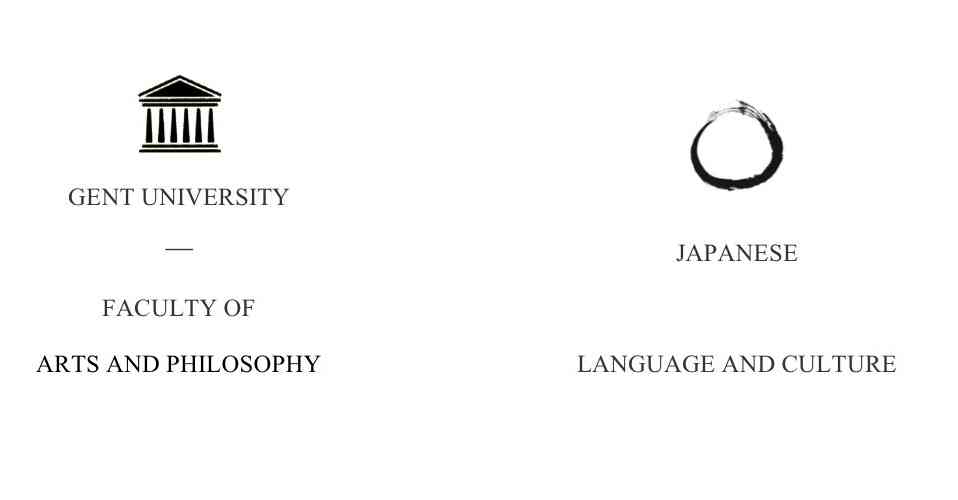【Report】Seminar “Religion and Modernity: The Case of Nishida Kitarô” by Prof. Christian Uhl (Gent University, Belgium)
What is modernity? The stimulating lecture delivered by Professor Christian Uhl (Gent University, Belgium) on July 6th, titled “Religion and Modernity: The Case of Nishida Kitarô”, provides us with a thoughtful answer for the question.
Professor Uhl started his lecture by introducing the emblems of two institutes at his university (shown below): the emblem of the Faculty of Art and Philosophy comes from the facade of a Greek building (left) and the emblem of the Center for Japanese Language and Culture is a figure of a circle painted with a brush.

Professor Uhl argued that the icon based on Greek architecture represents a concept of lasting since the beginning of occidental philosophy and implies that the Faculty belongs to the genealogy of philosophy. On the other hand, the circle of the Japanese Center points to the idea that Japan is a land of Zen, or Buddhism. Professor Uhl stated that these emblems, which may look completely unrelated to each other, are actually strongly linked based on the East/West antinomy. In Professor Uhl’s interpretation, Buddhism embodies an idea alternative to European philosophy. In addition, the idea of regarding Buddhism as something antinomic to European philosophy can be seen in one of the most influential Japanese philosophers, Nishida Kitarô’s conception of Buddhism.
Professor Uhl then mentioned the historical background of Nishida’s idea on Buddhism. He stressed the fact that the market economy started to prevail in Japan when Buddhism was “invented” as something alternative to the West. It is worth noting that not only the East/West relationship but also other antinomies such as form/content and particularity/universality were established at that time. Professor Uhl argued that the concept of “religion” was also formed as something alternative to “science”, and these antinomies were established based on the discipline of capitalism. The same antinomic relationship can be found in the process of capitalism, in which things turn into commodities through their exchange value in the market. Professor Uhl stated that the antinomy established in capitalism works as the basic framework of our perception of the world.
In A Study of Good (zen no kenkyû) Nishida conceptualizes “pure experience (junsui keiken)” as a state which launches the reality that differentiates into subjective and objective experiences. In Nishida’s theory, “religion” would allow us to stimulate “pure experience.” Professor Uhl drew our attention to Nishida’s conception of “pure experience”, which is based on the subject/object relationship, arguing that the subject/object antinomy, which not only Nishida but also European philosophers dealt with, is also based on the capitalist reality. Since Nishida features Zen or Buddhism, his theory is widely known in terms of its “Easternness.” However, Professor Uhl suggested that Nishida’s theory was developed in the context of global capitalism.
By illuminating the historical background of the “East/ West” antinomy, Professor Uhl goes beyond the existing interpretation of Nishida’s ideas and opens up a horizon for reorienting Nishida and other Asian philosophers’ theories in the global context. Professor Uhl’s argument, which finds a strong connection between “modernity” and capitalism is quite stimulating because it provides us with an important motivation to examine the relationship between “modernity”, “religion” and “capitalism.”
(reported by Mariko Naito)






